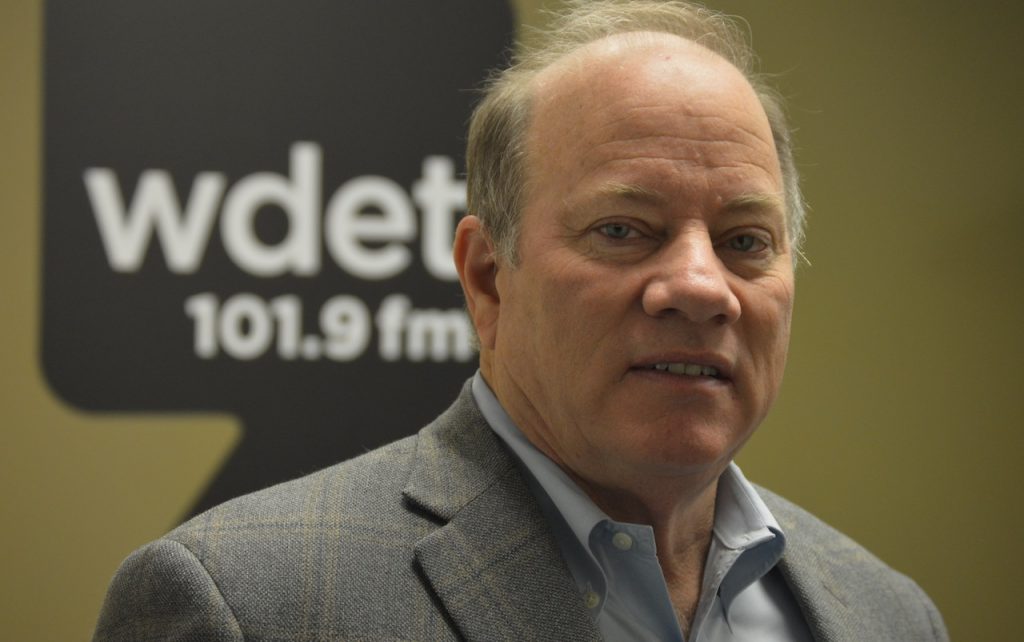Duggan Proposes Cutting City Salaries, Staff to Address COVID-19 Deficit
COVID-19 has blown a $348 million hole in the city’s finances. Mayor Mike Duggan is proposing cutting salaries and hours for nearly a third of its 8,000 employees. Here’s who is affected.

Detroit Mayor Mike Duggan at WDET Studios, March 2020.
Detroit will cut salary and staff as it deals with a $348 million budget deficit caused by COVID-19 closures.
Mayor Mike Duggan laid out a budget reduction plan last night, proposing cutting salaries and hours for nearly a third of the city’s 8,000 employees. Some workers, like police, fire, EMS and bus service, will be unaffected.
“Next to Las Vegas, we probably got hit harder than any city in the country because we rely on the casino taxes.” — Mayor Mike Duggan
About 900 staff will have their hours and pay cut by 90%, while another 1,300 will work at 80% of their usual schedule and salary. All city employees will forego pay increases as part of the mayor’s plan.
Duggan says about 200 part-time and temporary employees will be laid off.
“Many of them are 20-hour a week recreation department employees, play leaders, lifeguards, locker room attendants,” Duggan said. “Our [recreation] centers are closed. We can’t have kids congregating in a rec center right now because of the coronavirus.”
Duggan says the reduced pay and hour plan is meant to keep employee healthcare benefits intact. The city will also file unemployment and underemployment claims for affected workers.
Road repairs and blight removal will also be delayed during the COVID-19 crisis.
$50 Million In Pay Cuts
The city expects to lose money from income taxes, revenue sharing with Michigan and, eventually, property taxes, as a result of the COVID-19 outbreak. Duggan says casino revenue, which stopped in March, accounts for 17% of Detroit’s budget. He says the city never forecasted that kind of loss when planning for a recession.
“Next to Las Vegas, which is getting hit harder than us, we probably got hit harder than any city in the country because we rely on the casino taxes,” Duggan said.
Duggan says rainy-day savings operational cost cutting measures and federal aid will address most of the deficit. But he says $50 million dollars needs to come from pay cuts.
If Detroit does not fix its deficit on its own, state oversight from the Financial Review Commission will return for another three years.
“I am going to do everything that I can to make sure that does not happen,” Duggan said.
Detroit City Council will convene to consider the budget plan in May.
Trusted, accurate, up-to-date
WDET is here to keep you informed on essential information, news and resources related to COVID-19.
This is a stressful, insecure time for many. So it’s more important than ever for you, our listeners and readers, who are able to donate to keep supporting WDET’s mission. Please make a gift today.
